
Takanori Nishikawa is a Japanese musician, singer, songwriter, record producer, actor, voice actor, radio personality, and businessman. He performs under the stage name T.M.Revolution (T.M.R.), which stands for "Takanori Makes Revolution", stemming from the famous 1980s pop electronic band TM Network. Despite most of his songs being written by Akio Inoue and composed/arranged by Daisuke Asakura, T.M.Revolution is considered Nishikawa's solo project. Nishikawa is also known for contributions of ending and opening themes to many notable anime and game series.

Tetsuya Komuro is a Japanese musician, songwriter and record producer. He is recognized as the most successful producer in Japanese music history and has introduced contemporary electronic dance music to the Japanese mainstream. He was also a former owner of the disco Velfarre located in Roppongi, Tokyo.
Daisuke Asakura is a Japanese musician, songwriter and producer who is known for his compositional work and skill at keyboards.
Iceman was a three-member Japanese electronica/pop rock group, consisting of Daisuke Asakura (keyboards), Kenichi Ito (guitar), and Michihiro Kuroda. They officially assembled on June 5, 1996, when a press conference was held in Tokyo to announce the two musicians who would accompany Daisuke Asakura in his next musical venture after the breakup of Access. Between 1996 and 1999, they released six albums, a multitude of PV and live concert videos, and even a video game. Their unique and varied sound bridged genres from hard electronic rock, to pop, and even techno ("Caution").
Access is a Japanese pop group. Its members are Daisuke Asakura and Hiroyuki Takami. Asakura is the primary composer/producer and featured keyboardist while Takami is the vocalist. Takami also writes a major portion of access' lyrics. Access is currently signed with Sony Music Associated Records. The name "access" is stylized in lowercase letters.
Run&Gun is a Japanese boy band and performance troupe associated with Yoshimoto Kogyo. The group was formed in 2001 by Antinos Records. The members consist of Yuya Miyashita, Kosuke Yonehara, and Akira Nagata; Ryuji Kamiyama left the group in 2014.
Air is a visual novel developed by Key and published by VisualArt's in 2000. The story follows Yukito Kunisaki, a traveler who arrives in a quiet seaside town during summer who is on a search for the "girl in the sky" that his now-deceased mother told him about and was searching for too. In town, Yukito meets three strange girls and Yukito begins to suspect that one of them may in fact be the girl he has been searching for. It was adapted by Toei Animation into an animated film in 2005 directed by Osamu Dezaki with music direction by Yoshikazu Suo. Kyoto Animation also adapted it into a 13-episode anime television series broadcast in 2005, along with an additional two episodes also broadcast in 2005, directed by Tatsuya Ishihara with music direction by Shinji Orito. The discography of Air and its anime adaptations consists of one EP, one single, two soundtracks, and three remix albums.

Hadouken! were a British band formed in London in 2006 by singer, songwriter and producer James Smith and synth player Alice Spooner along with guitarist Daniel "Pilau" Rice, bassist Christopher Purcell and drummer Nick Rice. The band took its name from the special attack of the same name from the Street Fighter video game series. It was in Leeds that Hadouken! began their own record label, Surface Noise Records.

Mei Nakabayashi, better known by her stage name May'n, is a Japanese singer from Nagoya. Aspiring to become a singer since childhood, she began her music activities in 2003 upon passing an audition held by talent agency Horipro International. She made her major debut in 2005 under the Universal Music label with the release of her first single "Crazy Crazy Crazy". She would release two more singles under Universal Music, before transferring to Victor Entertainment in 2008. That same year, she had her break as the singing voice of the character Sheryl Nome in the anime series Macross Frontier.
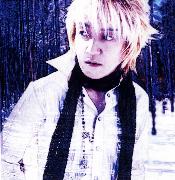
Violet Meme -Murasaki no Jyouhoudentatsu Chi-(Violet Meme -紫の情報伝達値-), also known as Quantum Mechanics Rainbow I: Violet Meme, is the sixth solo album by artist Daisuke Asakura. It is the first in a series of seven albums released by Asakura in 2004, called Quantum Mechanics Rainbow. Each album revolves around a different color of the rainbow and a different term relating to Quantum Mechanics. This album revolves around the color violet.
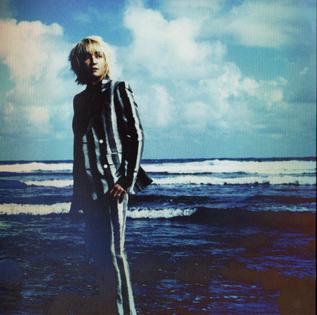
Indigo Algorithm -Ai no Denshi Kisuuhou-, also known as Quantum Mechanics Rainbow II: Indigo Algorithm, is the seventh solo album by artist Daisuke Asakura. It is the second in a series of seven albums released by Asakura in 2004, called Quantum Mechanics Rainbow. Each album revolves around a different color of the rainbow and a different term relating to Quantum Mechanics. This album revolves around the color indigo. The album also contains a re-arrangement of a song originally performed by another, now defunct, band that Daisuke Asakura had produced in the past, The Seeker. It also contains guest vocals by Takatoshi Shindo.

Blue Resolution -Ao no Shikaku Kaiseki do-, also known as Quantum Mechanics Rainbow III: Blue Resolution, is the eighth solo album by artist Daisuke Asakura. It is the third in a series of seven albums released by Asakura in 2004, called Quantum Mechanics Rainbow. Each album revolves around a different color of the rainbow and a different term relating to Quantum Mechanics. This album revolves around the color blue. It also contains guest vocals by Mayumi Fujita.

Green Method -Midori no Chuuyou Chitsuyo Kei-, also known as Quantum Mechanics Rainbow IV: Green Method, is the ninth solo album from Japanese musician Daisuke Asakura released on September 15, 2004.

Yellow Vector – Ki no Taji Gen Shikousei-, also known as Quantum Mechanics Rainbow V: Yellow Vector, is the tenth solo album from Japanese musician Daisuke Asakura released on November 30, 2004. The album is the fifth in the Quantum Mechanics Rainbow series. The concept of this series is "one album for every rainbow color and a different Quantum Mechanics term". Track 7 is dedicated to D.A.N.K, a boy band Asakura formed in a futile attempt to copy the popularity of Japanese music company Johnny’s Entertainment Company. Tracks 1 and 8 make references to physicist Erwin Schrödinger and mathematician Pierre-Simon Laplace, respectively. Track 5 contains guest vocals from Mayumi Fujita, who has performed vocals on several of Asakura’s Quantum Mechanics Rainbow albums.

Orange Compile -Daidai no Noudou Hensekishiki-, also known as Quantum Mechanics Rainbow VI: Orange Compile, is the eleventh solo album from Japanese musician Daisuke Asakura released on December 31, 2004. The album is the sixth in the Quantum Mechanics Rainbow series. The concept of this series is "one album for every rainbow color and a different Quantum Mechanics term".

Red Trigger -Aka no Yuuhatsu Omoi Douki-, also known as Quantum Mechanics Rainbow VII: Red Trigger, is the twelfth solo album from Japanese musician Daisuke Asakura released on March 3, 2005. The album is the seventh and final in the Quantum Mechanics Rainbow series. The concept of this series is "one album for every rainbow color and a different Quantum Mechanics term".
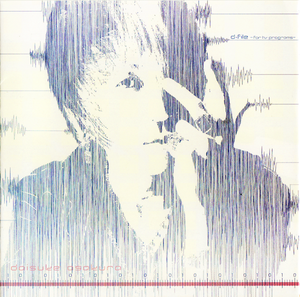
d・file -for tv programs-, is the thirteenth solo album from Japanese musician Daisuke Asakura released on July 19, 2006. According to the title, each track on the album was used in a Japanese television program, but it has never been specified by Asakura in exactly which television programs the tracks were used.
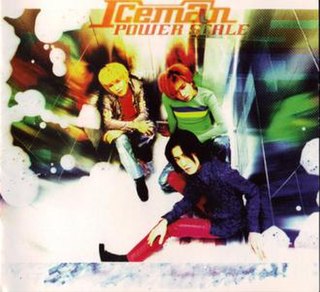
Power Scale is the first album released by Japanese pop rock trio Iceman on March 26, 1997.

Digiryzm Mutation is the second album released by the Japanese pop rock trio Iceman on May 21, 1998.
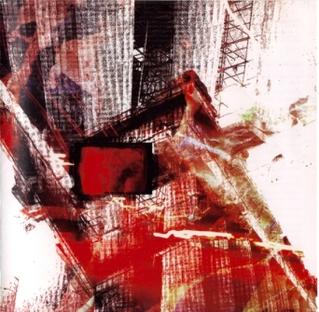
Gate II is the third album released by Japanese pop rock trio Iceman on May 21, 1998. It is also the first in a small series of albums released by Iceman from 1999 until their official departure from the Japanese music scene in 2003. This series includes three studio albums, as well as 1 remix album and 1 “analog” album. This album also contains the single “Shining Collection,” which since its use in the anime Gravitation, has gained a substantial following among the anime/manga community.















